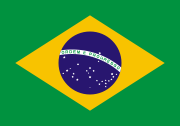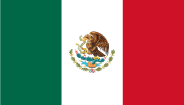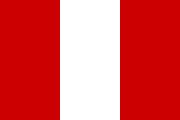Miami Beach, Florida
| City of Miami Beach | |||
|---|---|---|---|
| — City — | |||
 |
|||
|
|||
| Nickname(s): The Beach | |||
 |
|||
 |
|||
| Coordinates: | |||
| Country | United States | ||
| State | Florida | ||
| County | Miami-Dade | ||
| Incorporated | March 26, 1915 | ||
| Government | |||
| - Mayor | Matti Herrera Bower | ||
| Area | |||
| - City | 18.7 sq mi (48.5 km2) | ||
| - Land | 7.0 sq mi (18.2 km2) | ||
| - Water | 11.7 sq mi (30.2 km2) 62.37% | ||
| Elevation | 3 ft (1 m) | ||
| Population (2005) | |||
| - City | 87,925 | ||
| - Density | 12,502.1/sq mi (4,829.5/km2) | ||
| - Metro | 5,422,200 | ||
| Time zone | EST (UTC-5) | ||
| - Summer (DST) | EDT (UTC-4) | ||
| Zip | 33109, 33139, 33140, 33141. | ||
| Area code(s) | 305, 786 | ||
| FIPS code | 12-45025[1] | ||
| GNIS feature ID | 0286750[2] | ||
| Website | www.miamibeachfl.gov | ||
Miami Beach is a city in Miami-Dade County, Florida, United States. The city was incorporated on March 26, 1915.[3] It is located on a barrier island between Biscayne Bay and the Atlantic Ocean; the Bay separates Miami Beach from the city of Miami, Florida. The city is often referred to under the umbrella term of "Miami", despite being a distinct municipality. As of the 2000 census, the city had a total population of 87,933. 55.5% of the population was foreign born.[4] A 2005 population estimate for the city was 87,925.[5] Miami Beach has been one of America's pre-eminent beach resorts for almost a century.
Contents |
Description
In 1979 Miami Beach's Art Deco Historic District was listed on the National Register of Historic Places. The Art Deco District is the largest collection of Art Deco architecture in the world and comprises hundreds of hotels, apartments and other structures erected between 1923 and 1943. Mediterranean, Streamline Moderne and Art Deco are all represented in the District. The Historic District is bounded by the Atlantic Ocean on the East, Lenox Court on the West, 6th Street on the South and Dade Boulevard along the Collins Canal to the North. The movement to preserve the Art Deco District's architectural heritage was led by former interior designer Barbara Capitman, who now has a street in the District named in her honor.
Government
Miami Beach is governed by a Mayor and 6 Commissioners. The mayor runs commission meetings and the mayor and all commissioners have equal voting power. The Mayor serves for terms of 2 years with a term limit of 3 terms and commissioners serve for terms of 4 years and are limited to 2 terms. Commissioners are voted for by region and every two years 3 commission seats are voted upon. A city manager is responsible for administering governmental operations.
As of November 2009 the Mayor is Matti Herrera Bower. The Commissioners are: Michael Gongora, Jerry Libbin, Jorge Exposito, Ed Tobin, Deede Weithorn and Jonah Wolfson.
Culture
Image and cultural depictions
South Beach (also known as SoBe, or simply The Beach, the area from 1st street to about 25th street) is one of the more popular areas of Miami Beach. Topless sunbathing is legal on certain designated areas of the beach. Before the TV show Miami Vice helped make the area popular, SoBe was under urban blight, with vacant buildings and a high crime rate. Today, it is considered one of the richest commercial areas on the beach, yet poverty and crime still remain in some places near the area.[6]
Miami Beach, particularly Ocean Drive of what is now the Art Deco District, was also featured prominently in the 1983 feature film Scarface and The Birdcage.
The New World Symphony Orchestra is based in Miami Beach, Florida, under the direction of Michael Tilson Thomas.
Lincoln Road, running east-west between 16th and 17th Streets, is a nationally known spot for great outdoor dining, bicycling, rollerblading and shopping and features and galleries of well known designers, artists and photographers such as Romero Britto, Peter Lik, and Jonathan Adler.
Jewish population
Miami Beach is home to a number of Orthodox Jewish communities with a network of well-established synagogues and yeshivas, in addition to a liberal Jewish community containing such famous synagogues as Temple Emanu-El (Miami Beach, Florida) and Cuban Hebrew Congregation. It is also a magnet for Jewish families, retirees, and particularly snowbirds when the cold winter sets in to the north. They range from the Modern Orthodox to the Haredi and Hasidic - including many rebbes who vacation there during the North American winter.
There are a number of kosher restaurants and even kollels for post-graduate Talmudic scholars, such as the Miami Beach Community Kollel. Miami Beach had roughly 60,000 people in Jewish households, 62 percent of the total population, in 1982, but only 16,500, or 19 percent of the population, in 2004, said Ira Sheskin, a demographer at the University of Miami who conducts surveys once a decade.
Miami Beach is home to the Holocaust Memorial on Miami Beach.
LGBT Community
The gay community in Miami Beach has dramatically deteriorated over the years.[7] By 2010, most LGBT populations moved up north into Broward County.[8] Random anti-gay attacks and Miami Beach Police brutality against gay men[9] are the most recent evident factors attributing to the exodus of LGBT culture, residents, and tourists. Ironically a new gay friendly mayor, Matti Herrera Bower, came together with increased corruption and homophobia in the city's police department.[10][11][12] Also, since the new mayor took office in 2007, an ordinance to close parks and beaches where gay men congregate was executed,[13] which led to an ongoing harassment of single men in general.[14] As a result, Miami Beach male tourists regardless of sexual orientation have been increasingly becoming targets for the Miami Beach Police Department, resulting in wrongful arrests and deaths.[15] In 2005, a local gay friendly radio station, Party 93.1 FM changed its format from dance to rock. As a result, Issues Over the Rainbow, South Florida's only gay-oriented FM talk show was cancelled.[16] Gone along with the show - the station's sponsorships of the Miami Gay & Lesbian Film Festival; Care Resource's annual White Party gala to fight AIDS; and Winter Party, a five-day fundraiser in early March that benefits South Florida gay charities.[17] In February 2010, ACLU announced that it will sue the City of Miami Beach for an ongoing targeting and arrests of gay men in public.[18] According to the ACLU, Miami Beach has a history of arresting gay men for simply looking "too gay".[19]
Other
According to the Morgan Quitno Awards, Miami Beach is one of the most dangerous small cities (population between 75,000 and 99,999) in the country.[20]
Each December, The city plays host to the major contemporary art exhibition Art Basel Miami Beach. In November 2007 and 2009, a multi-media art festival ("Sleepless Night") was held based on Nuit Blanche.[1][2][3]
Geography and climate

Miami Beach is located at (25.813025, -80.134065).[21]
According to the United States Census Bureau, the city has a total area of 48.5 km2 (18.7 mi2). 18.2 km2 (7.0 mi2) of it is land and 30.2 km2 (11.7 mi2) of it (62.37%) is water.
It has a Tropical monsoon climate (Köppen Am)[22], with hot humid summers and warm winters. There is a marked wet season during the summer months, with dry winters that feature much lower humidity. Miami Beach is one of only a handful of U.S. locales that has never recorded snow or snow flurries in recorded weather history.
Miami Beach's location on the Atlantic Ocean, near its confluence with the Gulf of Mexico make it extraordinarily vulnerable to hurricanes and tropical storms. Despite only experiencing one direct hit from a major hurricane in recorded weather history, (Hurricane Cleo in 1964), the area has seen indirect contact from hurricanes Betsy (1965), Andrew (1992), Irene (1999), Michelle (2001), Katrina (2005), and Wilma (2005).
| Climate data for Miami Beach, FL | |||||||||||||
|---|---|---|---|---|---|---|---|---|---|---|---|---|---|
| Month | Jan | Feb | Mar | Apr | May | Jun | Jul | Aug | Sep | Oct | Nov | Dec | Year |
| Source: The Weather Channel[23] | |||||||||||||
Surrounding areas
- Indian Creek, Surfside
- Biscayne Bay


 Atlantic Ocean
Atlantic Ocean - Biscayne Bay, North Bay Village, Miami, Fisher Island

 Atlantic Ocean
Atlantic Ocean - Fisher Island


 Atlantic Ocean
Atlantic Ocean - Government Cut, Fisher Island
Demographics
As of the census[1] of 2000, there were 87,933 people, 46,194 households, and 18,339 families residing in the city. The population density was 4,829.5/km2 (12,502.1/mi2). There were 59,723 housing units at an average density of 3,280.1/km2 (8,491.2/mi2). The racial makeup of the city was 86.74% White (40.9% were Non-Hispanic Whites,)[24] 4.03% African American, 0.23% Native American, 1.37% Asian, 0.04% Pacific Islander, 4.05% from other races, and 3.53% from two or more races. Hispanic or Latino of any race were 53.45% of the population.
There were 46,194 households out of which 14.0% had children under the age of 18 living with them, 27.4% were married couples living together, 8.5% had a female householder with no husband present, and 60.3% were non-families. 48.7% of all households were made up of individuals and 14.8% had someone living alone who was sixty-five years of age or older. The average household size was 1.87 and the average family size was 2.76.
| Historical populations | |||
|---|---|---|---|
| Census | Pop. | %± | |
| 1920 | 644 |
|
|
| 1930 | 6,494 | 908.4% | |
| 1940 | 28,012 | 331.4% | |
| 1950 | 46,282 | 65.2% | |
| 1960 | 63,145 | 36.4% | |
| 1970 | 87,072 | 37.9% | |
| 1980 | 96,298 | 10.6% | |
| 1990 | 92,639 | −3.8% | |
| 2000 | 87,933 | −5.1% | |
| Est. 2007 | 86,916 | −1.2% | |
In the city the population was spread out with 13.4% under the age of 18, 7.8% from 18 to 24, 38.2% from 25 to 44, 21.3% from 45 to 64, and 19.2% who were sixty-five years of age or older. The median age was thirty-nine years. For every 100 females there were 105.0 males. For every 100 females age eighteen and over, there were 105.4 males.
The median income for a household in the city was $27,322, and the median income for a family was $33,440. Males had a median income of $33,964 versus $27,094 for females. The per capita income for the city was $27,853. About 17.0% of families and 21.8% of the population were below the poverty line, including 25.2% of those under age 18 and 24.5% of those age sixty-five or over.
As of 2000, speakers of Spanish as a first language accounted for 55% of residents, while English made up 33%, Portuguese was at 3.4%, French was at 1.7%, German at 1.1%, Italian 1%, and Russian was 0.85% of the population. Due to the large Jewish community, Yiddish was spoken at the home of 0.81% of the population, and Hebrew was the mother tongue of 0.74%.[25]
As of 2000, Miami Beach had the 22nd highest concentration of Cuban residents in the United States, at 20.5% of the population.[26] It had the 28th highest percentage of Colombian residents, at 4.4% of the city's population,[27] and the 14th highest percentage of Brazilian residents, at 2.2% of the its population (tied with Hillside, New Jersey and Hudson, Massachusetts.)[28] It also had the 27th largest concentration of Peruvian ancestry, at 1.85%,[29] and the 27th highest percentage of people of Venezuelan heritage, at 1.79%.[30] Miami Beach also has the 33rd highest concentration of Honduran ancestry (1.03%)[31] and the 41st-highest percentage of Nicaraguan residents, which made up 1% of the population.[32]
Education
Miami-Dade County Public Schools serves Miami Beach.
- North Beach Elementary
- South Pointe Elementary
- Biscayne Elementary
- Feinberg/Fisher K - 8 Center
- Treasure Island Elementary in nearby North Bay Village
- Ruth K. Broad/ Bay Harbor Elementary in nearby Bay Harbor Islands
- Nautilus Middle School (which is the only Public middle school for the Miami Beach area)
- Miami Beach Senior High School (which is the only Public high school for the Miami Beach area)
Private schools include Alexander S. Gross Hebrew Academy, Landow Yeshiva - Lubavitch Educational Center (Klurman Mesivta for Boys), and Mechina High School.
Neighborhoods



- Bayshore
- Sunset Islands I & II
- Sunset Islands III & IV
- Sunset Harbour
- Biscayne Point
- Stillwater Drive Neighborhood
- City Center
- Collins Park
- Fisher Island (A small portion of the island)
- Flamingo/Lummus
- Flamingo Park
- Flamingo Park West
- North Ocean Drive Area
- South Beach
- La Gorce
- Allison Island
- Aqua Allison Island
- La Gorce Island
- La Gorce Pine Tree
- Lower North Bay Road Neighborhood
- Middle North Bay Road Neighborhood
- Nautilus
- Alton Road Neighborhood
- Lakeview/Surprise Lake
- Orchard Park
- North Shore
- Little Buenos Aires
- Normandy Fountain
- Park View Island
- Normandy Isles
- Normandie Sud
- Normandy Shores
- Oceanfront
- South Pointe
- SoFi (South of Fifth)
- Star Island, Palm Island, & Hibiscus Island
- Venetian Islands, including Belle Isle
- Biscayne Island
- Di Lido Island
- Rivo Alto Island
- San Marco Island
- San Marino Island
- West Avenue/Bay Road
- Lincoln West
Points of interest
- Fillmore Miami Beach at the Jackie Gleason Theatre
- Flagler Monument Island
- Fontainebleau Hotel
- Versace Mansion (Casa Casuarina)
- Holocaust Memorial
- Lincoln Road
- Miami Beach Architectural District
- Miami Beach Botanical Garden
- Ocean Drive
- South Beach
- Wolfsonian-FIU Museum
Sister cities
Miami Beach has 11 sister cities[33]
 Fortaleza, Brazil [34]
Fortaleza, Brazil [34] Brampton, Canada[35]
Brampton, Canada[35] Santa Marta, Colombia
Santa Marta, Colombia Ceský Krumlov, Czech Republic
Ceský Krumlov, Czech Republic Nahariya, Israel
Nahariya, Israel Pescara, Italy
Pescara, Italy Fujisawa, Japan
Fujisawa, Japan Cozumel, Mexico
Cozumel, Mexico Ica, Peru
Ica, Peru Almonte, Spain
Almonte, Spain Marbella, Spain
Marbella, Spain
See also
- Neighborhoods of Miami Beach, Florida
- List of upscale shopping districts
- South Florida
- Miami-Dade County
- Miami Beach Police Department
- Miami Modern Architecture
- John S. Collins
- Carl G. Fisher
- Collins Bridge
- Rosie the Elephant
- Fair Game (1995 film)
- Doral Hotel
- Ocean Drive
- Julia Tuttle Causeway
- Macarthur Causeway
- Venetian Causeway
- Spring Break
- 8th & Ocean
References
- ↑ 1.0 1.1 "American FactFinder". United States Census Bureau. http://factfinder.census.gov. Retrieved 2008-01-31.
- ↑ "US Board on Geographic Names". United States Geological Survey. 2007-10-25. http://geonames.usgs.gov. Retrieved 2008-01-31.
- ↑ Ruby Leach Carson. 40 Years of Miami Beach. p. 13.
- ↑ "| FAIR: City Factsheet: Miami Beach, Florida". Fairus.org. 2006-07-01. http://www.fairus.org/site/PageServer?pagename=research_research33a8_sup. Retrieved 2009-04-21.
- ↑ http://www.census.gov/popest/cities/tables/SUB-EST2005-04-12.xls
- ↑ MSNBC: South Beach: Life imitates art, quite vicely www.msnbc.com
- ↑ http://www.edgemiami.com/index.php?ch=news&sc=&sc2=news&sc3=&id=101090
- ↑ http://www.miaminewtimes.com/2010-01-14/news/gays-are-leaving-south-beach-for-fort-lauderdale/
- ↑ http://www.edgemiami.com/index.php?ch=news&sc=&sc3=&id=102439
- ↑ http://www.justnews.com/news/22519475/detail.html
- ↑ http://www.miaminewtimes.com/2010-03-25/news/miami-beach-cops-are-paid-up-to-225k-and-face-lawsuits-galore/
- ↑ http://miamiherald.typepad.com/gaysouthflorida/2010/02/breaking-news-aclu-to-sue-miami-beach-two-cops-for-unlawful-targeting-harassment-and-arrests-of-gay-men.html
- ↑ http://search.municode.com/html/13097/level3/SA_C82_AI.html#SA_C82_AI_s82-2
- ↑ http://forums.miamibeach411.com/general-discussion/4336-skinny-late-night-beach-romps-south-beach-photo.html
- ↑ http://www.nbcmiami.com/news/local-beat/Miami-Beach-police-officer-involved-in-two-shooting-deaths-in-four-days.html
- ↑ http://www.edisonresearch.com/home/archives/MiamiHerald2-16-05.pdf
- ↑ http://www.edisonresearch.com/home/archives/MiamiHerald2-16-05.pdf
- ↑ http://www.aclu.org/lgbt-rights/aclu-gives-notice-intent-sue-miami-beach-unlawful-arrest-gay-men-and-individuals-who-rep
- ↑ http://www.ontopmag.com/article.aspx?id=5217&MediaType=1&Category=26
- ↑ "City Crime Rankings by Population Group". Morganquitno.com. http://www.morganquitno.com/cit06pop.htm#25. Retrieved 2009-04-21.
- ↑ "US Gazetteer files: 2000 and 1990". United States Census Bureau. 2005-05-03. http://www.census.gov/geo/www/gazetteer/gazette.html. Retrieved 2008-01-31.
- ↑ "Köppen Climate Map Aw=tropical". .johnabbott.qc.ca. http://www2.johnabbott.qc.ca/webpages/departments/geoscience/intro/Koppen/KoppenMap.htm. Retrieved 2009-04-21.
- ↑ http://www.weather.com/weather/wxclimatology/monthly/graph/33140?from=36hr_bottomnav_undeclared |title=Monthly Averages for Miami Beach, Fla. |accessdate=2009-11-07 |year=2009 |publisher=The Weather Channel }}
- ↑ "Demographics of Miami Beach, Fla.". MuniNetGuide.com. http://www.muninetguide.com/states/florida/municipality/Miami_Beach.php. Retrieved 2007-11-01.
- ↑ "MLA Data Center Results of Miami Beach, Fla.". Modern Language Association. http://www.mla.org/map_data_results&state_id=12&county_id=&mode=&zip=&place_id=45025&cty_id=&ll=&a=&ea=&order=r. Retrieved 2007-11-01.
- ↑ "Ancestry Map of Cuban Communities". Epodunk.com. http://www.epodunk.com/ancestry/Cuban.html. Retrieved 2007-11-01.
- ↑ "Ancestry Map of Colombian Communities". Epodunk.com. http://www.epodunk.com/ancestry/Colombian.html. Retrieved 2007-11-01.
- ↑ "Ancestry Map of Brazilian Communities". Epodunk.com. http://www.epodunk.com/ancestry/Brazilian.html. Retrieved 2007-11-01.
- ↑ "Ancestry Map of Peruvian Communities". Epodunk.com. http://www.epodunk.com/ancestry/Peruvian.html. Retrieved 2007-11-01.
- ↑ "Ancestry Map of Venezuelan Communities". Epodunk.com. http://www.epodunk.com/ancestry/Venezuelan.html. Retrieved 2007-11-01.
- ↑ "Ancestry Map of Honduran Communities". Epodunk.com. http://www.epodunk.com/ancestry/Honduran.html. Retrieved 2007-11-01.
- ↑ "Ancestry Map of Nicaraguan Communities". Epodunk.com. http://www.epodunk.com/ancestry/Nicaraguan.html. Retrieved 2007-11-01.
- ↑ "Miami Beach Sister Cities Program". Miamibeachsistercities.com. http://miamibeachsistercities.com/. Retrieved 2009-04-21.
- ↑ "Miami Beach Sister Cities program - Fortaleza, Brazil". http://miamibeachsistercities.com/fortaleza.htm.
- ↑ "Historic Sister City Agreemtn Between Brampton and Miami Beach, Florida" (PDF). City of Brampton, Canada. 2008-10-03. http://www.brampton.ca/media-releases/08-054.pdf. Retrieved 2008-10-05.
Gallery
|
The historical Art Deco District at South Beach during the night. |
 The Art Deco District at South Beach during the day. |
Colorful new building blends in with the historic Art Deco |
External links
Official sites
Photos
- Miami Beach Architecture Photos
- The lifeguard towers of Miami Beach
- Photographs of Miami Beach From the State Library & Archives of Florida
- Photos of Miami Beach, Miami and surrounding areas
Other
- Miami Design Preservation League – Non-profit Organization for the preservation of Miami Beach Architectural History
- Miami's Southeast Coast - Biscayne Bay Watershed - Florida DEP
|
||||||||||||||||||||||||||

